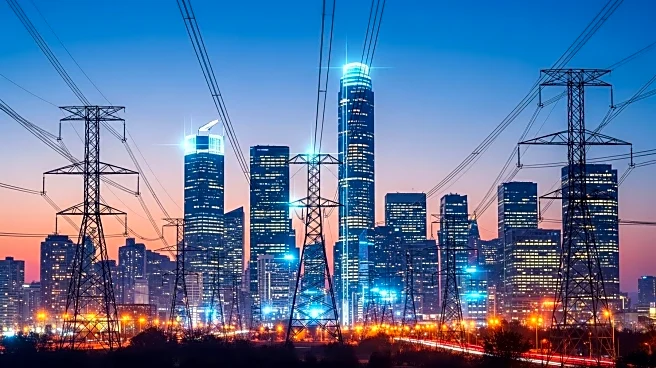What is the story about?
What's Happening?
U.S. electric grids are under pressure from the growing energy demands of data centers, prompting policymakers to consider disconnecting these centers during power emergencies. Texas has already implemented measures to protect residents from blackouts, and similar strategies are emerging in the mid-Atlantic grid. The rapid expansion of data centers, driven by Big Tech and AI developments, is outpacing power plant construction, leading to increased electricity bills for consumers. Grid operators are exploring ways to manage demand, including incentivizing data centers to reduce usage during peak times.
Why It's Important?
The strategy to manage data center energy consumption is crucial as it addresses the risk of grid overload and potential blackouts. This approach could stabilize electricity prices and prevent costly infrastructure investments. However, it poses challenges for data centers that rely on consistent power supply. The outcome of these policies will impact the tech industry, energy markets, and consumer electricity costs. Balancing energy efficiency with economic growth is vital as the U.S. competes globally in AI and tech innovation.
What's Next?
As more states consider similar measures, the tech industry may need to adapt by enhancing energy efficiency and investing in backup power solutions. Utility regulators will play a key role in shaping policies that balance grid stability with industry needs. The evolving landscape may lead to new partnerships between tech companies and energy providers, focusing on sustainable growth and innovation.

















